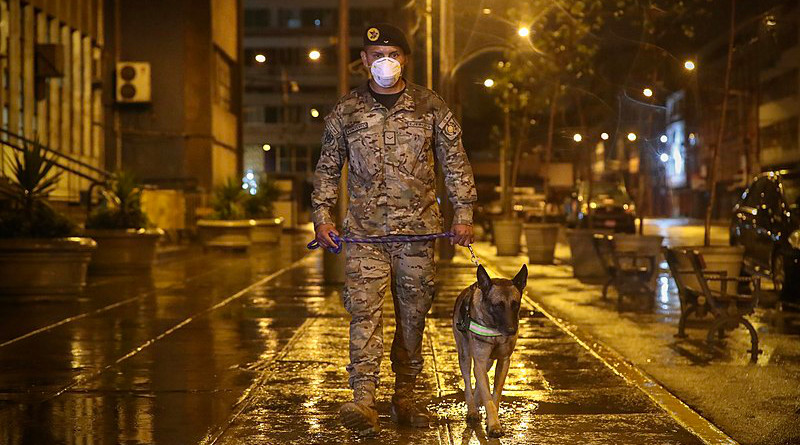COVID19: Understanding The Latin American Scenario – Analysis
By Observer Research Foundation
By Silvana Lopez
The most accurate word to describe the current COVID-19 pandemic situation is uncertainty at all levels. There is perhaps no person or institution that can claim to have been fully prepared to face this crisis. From brick and mortar establishments to high-tech companies, COVID-19 has struck all, one way or another.
Latin America is no exception. If anything, countries in the region have taken the COVID-19 punch hard as inequality is stronger and more visible than ever. People’s daily lives saw an immediate impact—they were no longer able to go out and buy groceries, to the bank, or for any other activity. Most Latin American countries are not yet fully digitalised, and do not have the infrastructure for the much-needed digital transformation. A significant number of people do not own smartphones or even have internet connectivity.[i] Additionally, there is a sizeable vulnerable population that cannot read or write.[ii]
Countries in the region were forced to react swiftly to the COVID-19 crisis. The initial months were of adaptation. People had to migrate their daily habits and chores to apps and tech platforms. Errands had to be digitalised, the elderly and other at-risk groups had to be taught to use smartphones and apps, and socialising had to come to a halt. But the financial sector is not wholly automated for essential services, creating further issues. Many banking activities still need to be done in person, as does the notarisation of official documents.
Entrepreneurship and vulnerable industries
Entrepreneurship is challenging and uncertain, even in countries with strong economies. While the COVID-19 pandemic has impacted all businesses and industries, Latin America’s entrepreneurial ecosystems have probably been worst hit.
Although there are several funds focused on encouraging Latino founders, Latino and black women, and other communities with limited access to resources to develop and launch their innovations, which may lighten the burden for some Latin American startups, non-tech enterprises (small hotels, hair salons, restaurants) had little support from the governments or industry once the lockdown measures were adopted.[iii]
This situation is just as bad for most young businesses across the region. For instance, earlier this year, young entrepreneurs set up ‘glamping’ spots in the Colombian ‘Coffee Triangle’—an area known for its coffee growth and biodiverse tourism. Although the concept proved popular, with many reservations, the business had to seek loans once the pandemic hit.
Although some regional programmes focus on keeping these types of entrepreneurship alive, governments must work with the banking sector to create a plan that will have a profound impact on such local businesses.
Government and vulnerable populations
Alongside its impact on people and businesses, COVID-19 disrupted normal government functioning as well. While governments were forced to act quickly to mitigate the risks of this unprecedented crisis, there were several mistakes from which to learn.
Across the region, there is a lack of using technology and data analytics to arrive at sustainable solutions. Without proper data analytics, keeping economies dormant, closing the borders and halting businesses may prove more dangerous than the virus by placing the vulnerable at further risk. Yet, technology and tech-based solutions are far from being considered as part of solutions and mitigation efforts.
Several Latin American countries have a high rate of informal jobs. For instance, in Peru, informal employment reached around 73 percent in 2019 and contributed 19 percent to the country’s GDP. Governments were forced to make a difficult choice—economy or health.[iv]
The strict quarantine measures impacted the informal markets hard, leaving many families without any means of survival. Palliatives such as subsidies for medicine and food were not enough.
Many local governments had no time or resources to plan for the harsh impacts of COVID-19. While the quarantine allowed governments to boost healthcare capacity and enact policies and strategies to make life sustainable, the period was tough for those without monetary savings, guaranteed access to food and comfortable homes.
Latin American countries are also at the forefront of medical and biotech innovation. In Colombia, for instance, a large number of doctors and investigation centres are studying possible COVID-19 vaccines and treatments.[v] But a challenge remains—securing greater resources to invest in research and development, and enhancing the global visibility of such innovation. Latin American countries must join forces on this front for enhanced cooperation and knowledge and skill sharing.
The way ahead
Although Latin America is still reeling from the COVID-19 crisis, it will find a new normal. Yet, given the strong inequities in these countries, it is unrealistic to predict what daily lives will be like, what government policies will focus on, or how the health systems will adapt.
Now is a good time to remodel the regional education system to make it accessible to the most vulnerable groups, and provide them with a chance in life.
Latin America is facing a tough time, like much of the rest of the world, but it must confront its internal issues as well. It must recognise the role of informal economic activity to protect the sector, it must contend with its migration issues, and must work to address the institutional instability in some countries. It is time for the region to work together.
[i] “Conectividad: la otra desigualdad más evidente con la pandemia”, Forbes, April 8, 2020.
[ii] “El analfabetismo funcional en América Latina y el Caribe: Panorama y principales desafíos de política”, CEPAL, May, 2014.
[iii] “Policy Brief: The Impact of COVID-19 on Latin America and the Caribbean”, United Nations, July, 2020.
[iv] “Economía informal en Perú: situación actual y perspectivas”, CEPLAN, 2016.
[v] “Univalle lidera investigaciones sobre el COVID-19”, La Universidad del Valle, April 15, 2020.

